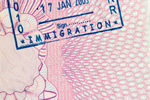How to land a Gulf State dream job in spite of the competition

How to land a Gulf State dream job in spite of the competition
The three main reasons for considering a relocation overseas are a wish for new experiences, a chance to get to grips with an unfamiliar culture and the opportunity to achieve career goals. For all three plus the reality of a huge salary, the Middle East is still seen as the preferred option for a high number of expatriate professionals. Getting the right job depends as much on your approach as it does on your qualifications and experience, and preparing well in advance is the way forward. If career goals are your focus.
Taking a close look at the expat market for your talents is your first task, with the information you need easily found on recruitment and advisory websites. Checking the required qualifications and experience requested for jobs which appeal to you will give you an overview of what’s needed, and re-checking whether your qualifications will transfer or whether you need to re-qualify gives the exact picture of potential employers' preferences. Identifying skills shortages which may apply to your sector is the next move, followed by assessing your own skills as to whether they’ll fit with employers born into a completely different culture.
One requirement you’ll need to take notice of is the task of learning Arabic, usually necessary for higher roles in Middle Eastern companies. Although English is the region’s main business language, many global companies require at least some basic knowledge of the local language. CV formats vary country by country, making it necessary to research which ones are used in Arab states. You may need to rewrite yours to ensure it’s acceptable, with an online CV builder the best way to deal with this chore. Using the right keywords will ensure prospective employers find you, rather than your being forced to undertake weeks of searching to find them.
Checking on work visa requirements and ensuring you have all the right documents in all the right formats is essential, and also demonstrates you have a tidy mind! Most importantly, you should keep an open mind about new career opportunities in your preferred region. Be prepared to accept a little less compensation or even change the focus of your career in order to accept a new challenge which takes you in a totally different direction. Also, positioning yourself as a potential employee who’s able to contribute more than the opposition can work wonders, especially if there’s a queue of wannabees for a specific position.
Related Stories:
- Is Kuwaitization the unintended result of the oil price crash? - July 20, 2020
- Expats in Malaysia still banned from overseas travel - July 17, 2020
- HSBC Asia to cut back on internal expat relocations - July 16, 2020
- Tips on integrating for newly-arrived expats - July 15, 2020
Latest News:
- Tips on a trouble-free relocation as an expat overseas - July 20, 2020
- Expats find peace in the covid-19 refuge of Dahab town - July 20, 2020
- Is Kuwaitization the unintended result of the oil price crash? - July 20, 2020
- Expats unhappy abut changes to Korean points-based visa system - July 17, 2020
- Chiang Mai and Bangkok no longer bargain locations for expats - July 17, 2020
- Expats in Malaysia still banned from overseas travel - July 17, 2020
- Vietnam welcomes expats to its safe, affordable lifestyle - July 16, 2020
- Asian tiger economies reach out to expats in Hong Kong - July 16, 2020
- HSBC Asia to cut back on internal expat relocations - July 16, 2020
- Tips on integrating for newly-arrived expats - July 15, 2020


